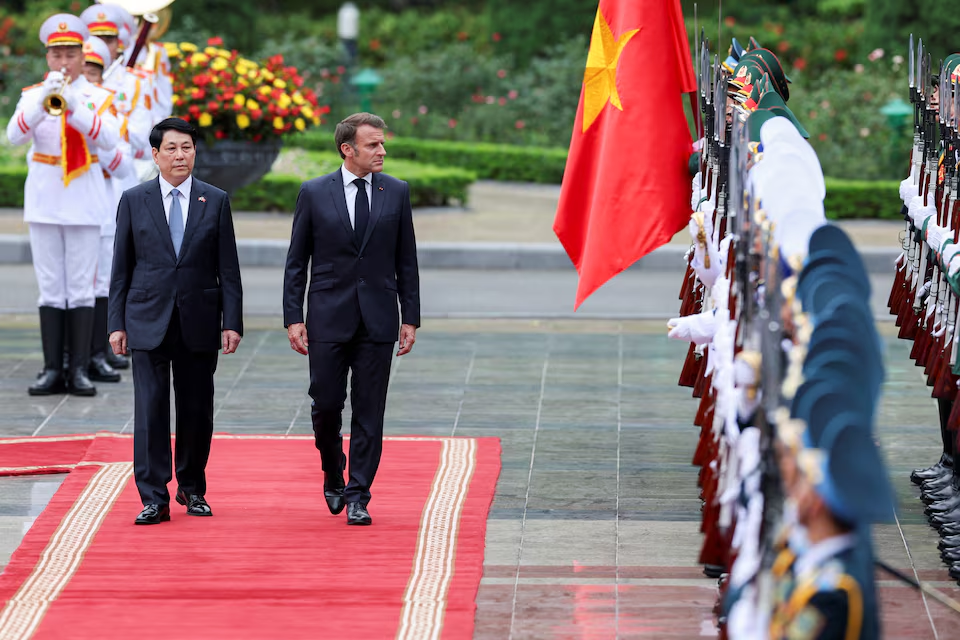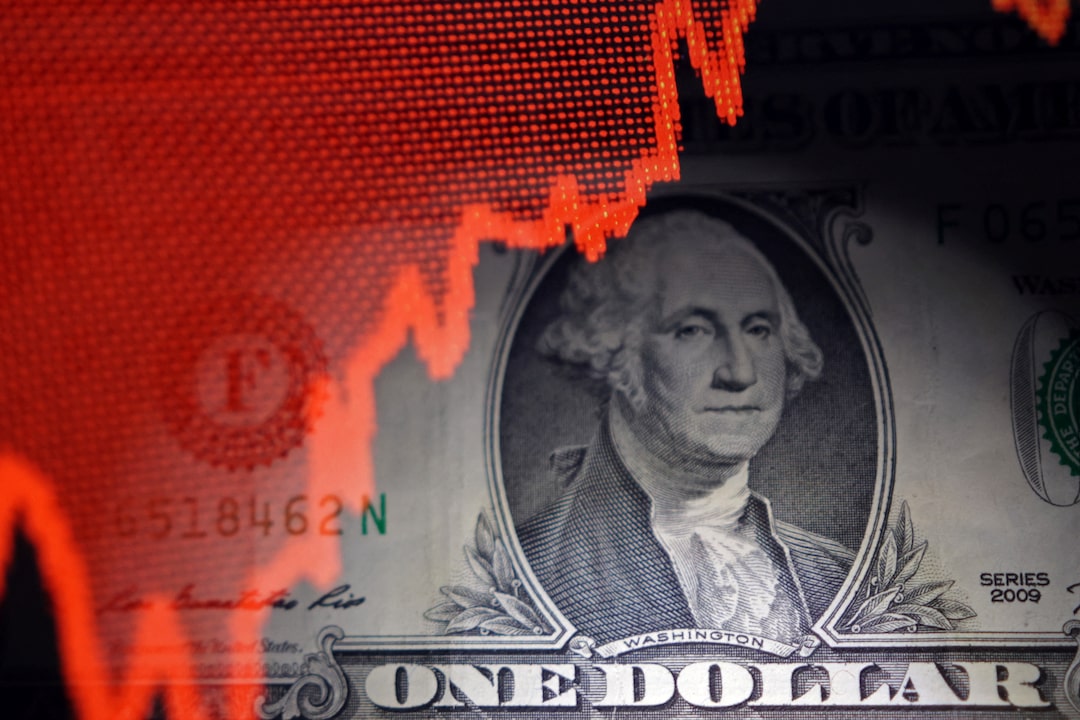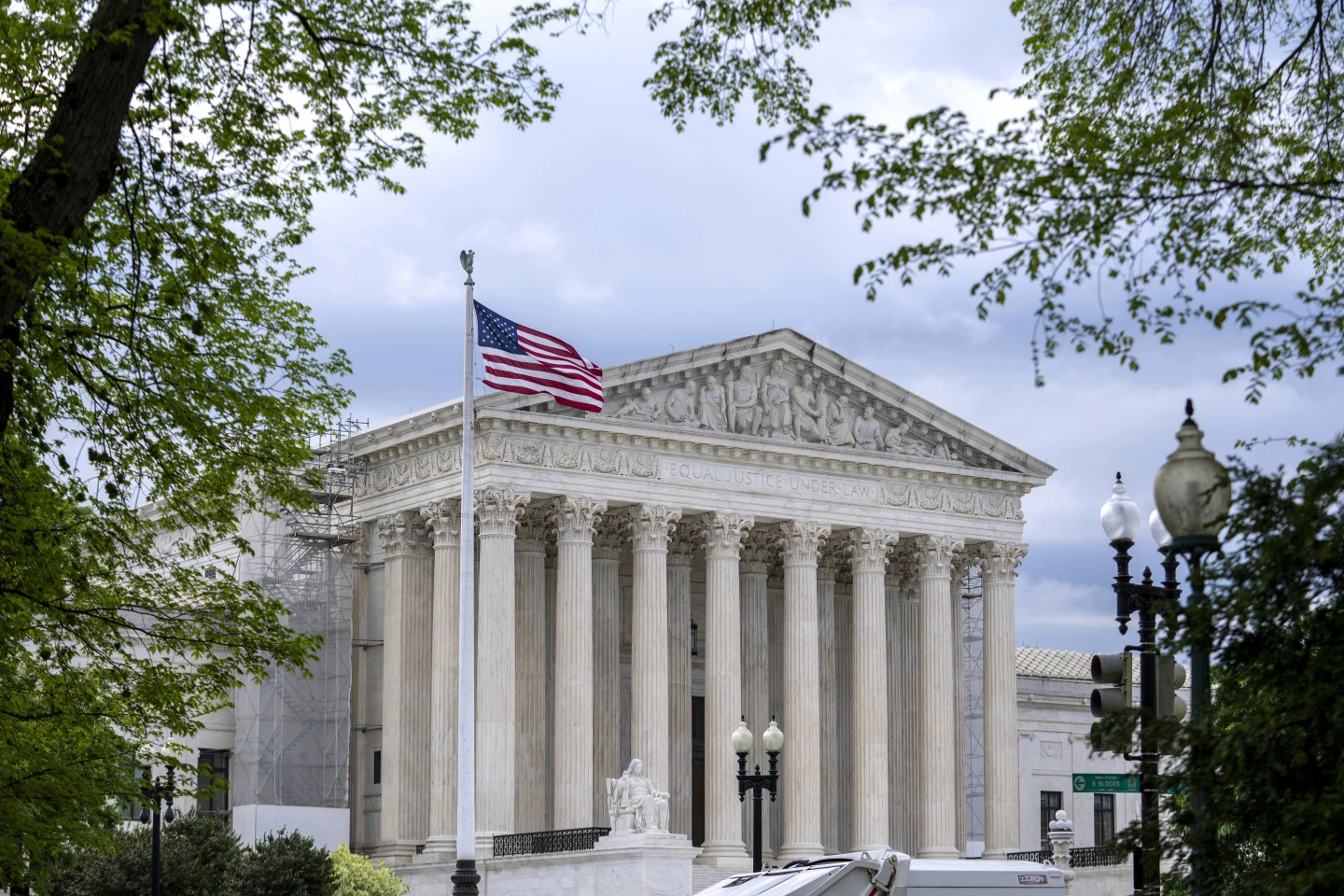France and Vietnam are poised to sign dozens of bilateral agreements spanning defense, trade, green energy, and high-tech industries, as French President Emmanuel Macron begins a landmark visit to Hanoi on May 26, 2025. The visit signals a significant deepening of strategic and economic ties between the European and Southeast Asian nations, both seeking to balance China’s growing regional influence.
Macron, who was welcomed with full honors in the Vietnamese capital, framed the trip as part of France’s broader Indo-Pacific strategy, aimed at reinforcing partnerships with emerging powers across the region.
“Vietnam is a key partner for France in a more balanced, multipolar Asia,” Macron said ahead of the talks.
🤝 Dozens of Deals on the Table
According to French and Vietnamese officials, the two sides are expected to sign over 30 agreements, including:
- A landmark defense cooperation framework, covering naval technology and cybersecurity
- Joint ventures in green energy, including solar and wind infrastructure
- Partnerships in AI, semiconductor research, and digital transformation
- Contracts involving aviation, pharmaceuticals, and agricultural exports
French multinational firms like Airbus, TotalEnergies, and Thales are participating in the deal packages, with Hanoi hoping to attract French investment to upgrade its industrial base.
🛡️ Defense and Maritime Security in Focus
France, a resident power in the Indo-Pacific with territories such as New Caledonia and French Polynesia, is increasingly involved in regional maritime security. The two countries are reportedly advancing discussions on joint naval exercises, officer training, and arms procurement, including French-made patrol vessels and surveillance equipment.
Vietnam, which shares a tense maritime boundary with China in the South China Sea, has been diversifying its defense partnerships amid rising regional tensions.
“This visit sends a message: Vietnam will not remain solely in China’s orbit,” said a Southeast Asia security expert.
🌍 Geopolitical Calculations
Macron’s visit to Vietnam follows similar overtures to India, Indonesia, and the Philippines, as Paris seeks to counterbalance both U.S.-China rivalry and increase EU visibility in Asia. Vietnam, one of Asia’s fastest-growing economies, is emerging as a critical player in global supply chains and a strategic pivot point for major powers.
The visit also coincides with the 50th anniversary of France-Vietnam diplomatic relations, adding symbolic weight to the newly inked deals.
“This partnership reflects a shared vision of sovereignty, multilateralism, and sustainable development,” Macron said during a joint press briefing.
📈 Economic Implications
The agreements are expected to boost bilateral trade, which surpassed $7 billion in 2024, and open the door to EU-backed infrastructure projects under France’s Global Gateway initiative. Vietnam, already a manufacturing hub, is also seeking to become a tech and logistics center, and France sees an opportunity to compete with China, Japan, and South Korea in those sectors.
French companies are especially interested in Vietnam’s green transition agenda, including clean transport, smart cities, and climate resilience.
⏭️ What to Watch
- Implementation of the defense and naval cooperation roadmap
- Scaling of French investments in Vietnam’s digital and green sectors
- Vietnam’s balancing act between China, the U.S., and European powers
- Reactions from Beijing, which views foreign military cooperation in its neighborhood with suspicion
- Future EU-ASEAN trade integration moves
Macron’s visit to Hanoi is more than a diplomatic formality — it’s a strategic maneuver in the Indo-Pacific chessboard, aiming to build a robust and diversified alliance in a region where power dynamics are rapidly shifting. For Vietnam, the deals mark a significant step in asserting independence and attracting high-value partnerships for the future.
Source; Reuters



